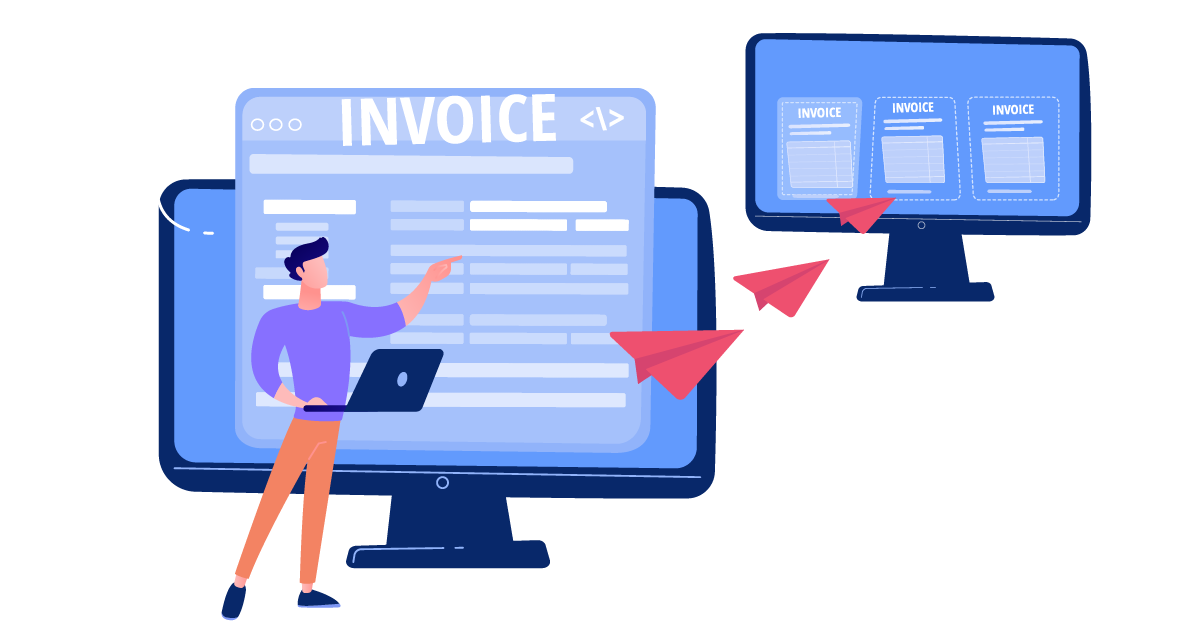
In Belgium and Germany is decided to make electronic invoicing for business transactions mandatory. In doing so, they are following the example of among others Italy and Poland, where this decision was taken earlier. Companies in these countries are required to send electronic invoices, with other methods such as PDF invoices no longer acceptable. For Dutch companies this means an important period of adjustment and preparation. ICreative helps you with this. With our platform 4Exchange you can receive and receive and ensure compliance with e-invoices.nn.
Legislation in Germany
With the passage of the Growth Opportunities Act on March 22, 2024, Germany gave the go-ahead for the gradual introduction of mandatory e-invoicing. From Jan. 1, 2025, all companies involved in B2B transactions must be able to receive electronic invoices. A transition period follows to give companies time to adapt to the EN16931 standard for e-invoicing.
From January 1, 2027, e-invoicing will be mandatory for German companies with an annual turnover of more than €800,000. For companies with lower turnover, this obligation begins on Jan. 1, 2028. There is also an extended transition period until Jan. 1, 2028 for existing Electronic Data Interchange (EDI) connections with non-compliant e-invoice formats.
Legislation in Belgium
In early 2024, the Belgian Parliament also gave the green light to a law mandating electronic invoicing for business transactions.
In Belgium, as in the Netherlands, e-invoicing was already mandatory in the public sector. This obligation will now be extended to the private sector from Jan. 1, 2026, using the European Peppol network.
State of e-invoicing in the Netherlands
In the Netherlands, e-invoicing is currently only mandatory for business transactions with government agencies. However, this will change as the European Commission has approved the VAT in the Digital Age (ViDA) bill. This law makes e-invoicing mandatory for B2B transactions in all EU member states from 2028, starting with cross-border transactions.
The decision by Belgium and Germany to mandate e-invoicing anticipates this new European legislation, and the Netherlands will have to follow suit in the coming years. Recent research by DirectResearch shows, however, that one in five large companies in the Netherlands currently rarely if ever receives an e-invoice, indicating that there is still a long way to go before companies are ready to fully comply with these obligations.
Why is e-invoicing becoming mandatory?
The European Commission sees e-invoicing as a means to simplify VAT declarations and combat VAT fraud, with billions of euros of VAT revenue lost every year. With e-invoicing, the government can perform VAT audits more efficiently through Continuous Transaction Control.
In addition, e-invoicing offers businesses benefits such as faster payment processes, fewer errors and up-to-date accounting, which is important for maintaining financial health. Studies show that e-invoicing can save up to 9 euros per invoice.
Advice: prepare
It is advisable for Dutch companies to start implementing e-invoicing now. So that you comply with the regulations in surrounding countries, can respond to the wishes of customers or suppliers who have already switched, and are ready for when the obligation is also introduced in the Netherlands. At the same time, you will reap the benefits of more efficient electronic business.
ICreative is happy to help you with this. Together with our sister companies Diesis and Easy Systems, we have 4Exchange developed. This is the platform to easily and safely receive and send e-invoices via Peppol or one of the many other e-invoicing networks. Formatting and sending or receiving and processing of e-invoices is fully automated and of course in accordance with the laws and regulations of the countries in which you operate.
Would you like to know more about 4Exchange? Contact us or download the 4Exchange brochure.









